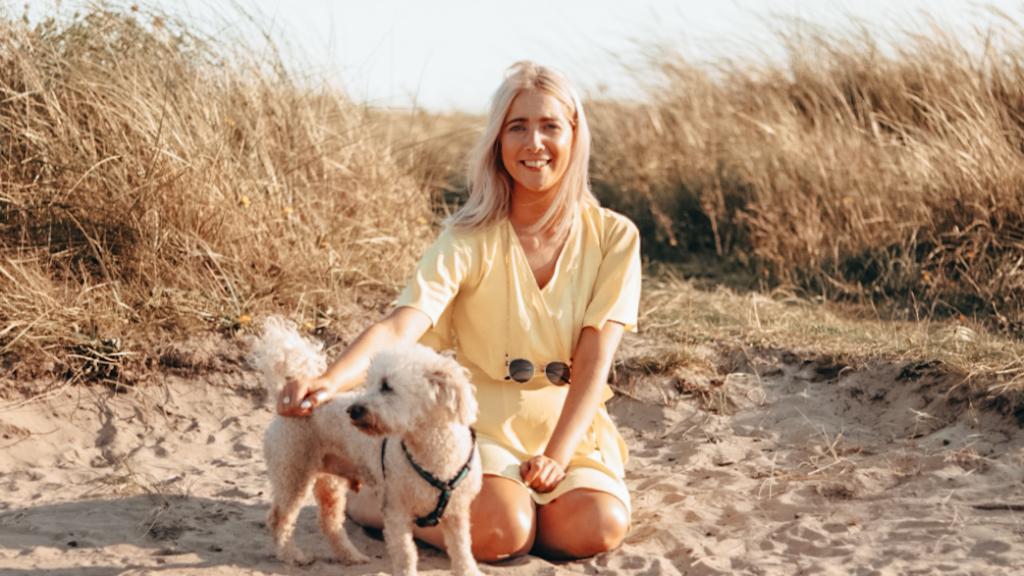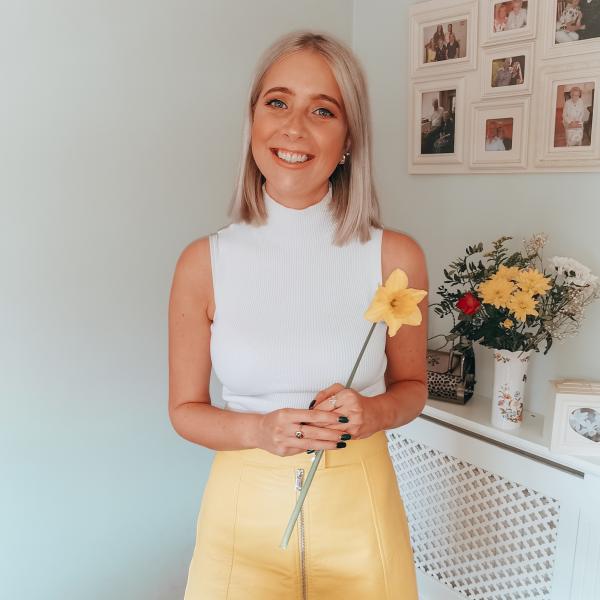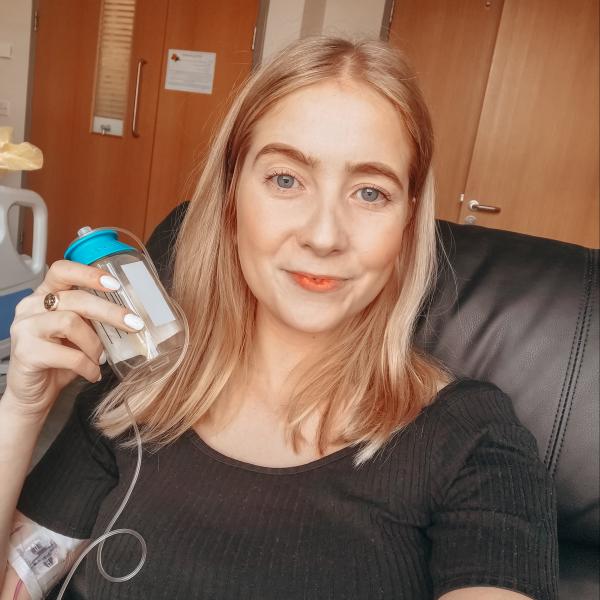
'It’s really important to know what’s normal for you and to be aware of symptoms' - cervical cancer survivor Aoife

“Before my diagnosis my biggest focus was on my next trip to New Zealand or wherever, on going travelling more. Not thinking about this kind of stuff. It was just really adult stuff and I wasn’t in that mindset. It was really hard to process,” recalls 29-year-old Aoife P Rafter from Kildare.
Aoife began experiencing symptoms of cervical cancer when she was travelling in Australia in 2019. Initially she dismissed the symptoms as side-effects from the medication for her Cystic Fibrosis. Her last smear test two years previously had come back normal, so she wasn’t overly concerned at first.
“But I literally ended up with every symptom in the book for cervical cancer so I went for an unscheduled smear test.”
Aoife visited a GP in Australia for her smear test and the doctor noticed inflammation and a possible polyp during the test. No abnormal cells were reported when the smear test results came back, so the doctor referred Aoife to a gynecologist for biopsies. Aoife got the biopsies done days before she returned home to Ireland.
Aoife was due to visit St Vincent’s Hospital in Dublin for her Cystic Fibrosis, so her medical team there put her in touch with the oncology department. Aoife also visited an Irish Cancer Society Daffodil Centre while she was in St Vincent’s:
“Daffodil Centres are brilliant because it really filled a gap. I just went in one day and sat down with one of the nurses and she was brilliant.”

Aoife’s treatment for her cervical cancer included a radical hysterectomy (surgery to remove the womb) and radiotherapy.
“Although the surgery was successful, there was a worry about the chance of recurrence. So we had a few conversations back and forth about precautionary radiotherapy. Obviously there was a lot of side-effects to weigh up. But eventually we decided to go ahead with 25 sessions of radiotherapy, which I finished in January 2020.”
Aoife is grateful for the support of her family and friends throughout her cancer experience, especially her best friend Katelyn, a professional social worker who Aoife says felt like her own personal social worker during that time: “She sent me books and gave me information. Everything she gave me was absolutely on point and so helpful. She was able to prep me to ask the right questions in relation to doing IVF and all that kind of thing. It definitely took the edge off everything. I remember the day I went to hospital to be told my treatment plan. I was obviously devastated, but my next question was, ‘Can I do IVF?’ My Mum still says, ‘I have no idea where you got that strength from that day. It amazed me that you knew what to ask, and that you didn’t break down until you left.’ It was thanks to Katelyn.”
Aoife also found the Irish Cancer Society’s website useful: “There’s so much helpful information on the Irish Cancer Society website. There’s so much practical advice.”
Because Aoife’s cervical cancer was diagnosed due to symptoms and didn’t show up in a smear test, she’s passionate about raising awareness of both attending your scheduled smear tests and being aware of the signs and symptoms: “It’s really important to know what’s normal for you and to be aware of symptoms. You know your own body better than anyone.”
For information about cervical cancer including potential symptoms, you can download our 'Cervical Cancer - What You Should Know' leaflet.
If you're worried about cervical cancer symptoms at any time you're advised not to wait for screening but to contact your GP immediately.
Contact the Irish Cancer Society Support Line
If you are worried that cancer might run in your family, call our Support Line on Freephone 1800 200 700 to speak to one of our cancer nurses in confidence or download our free factsheet on cancer and genes.

For more information
Phone
1800 200 700

